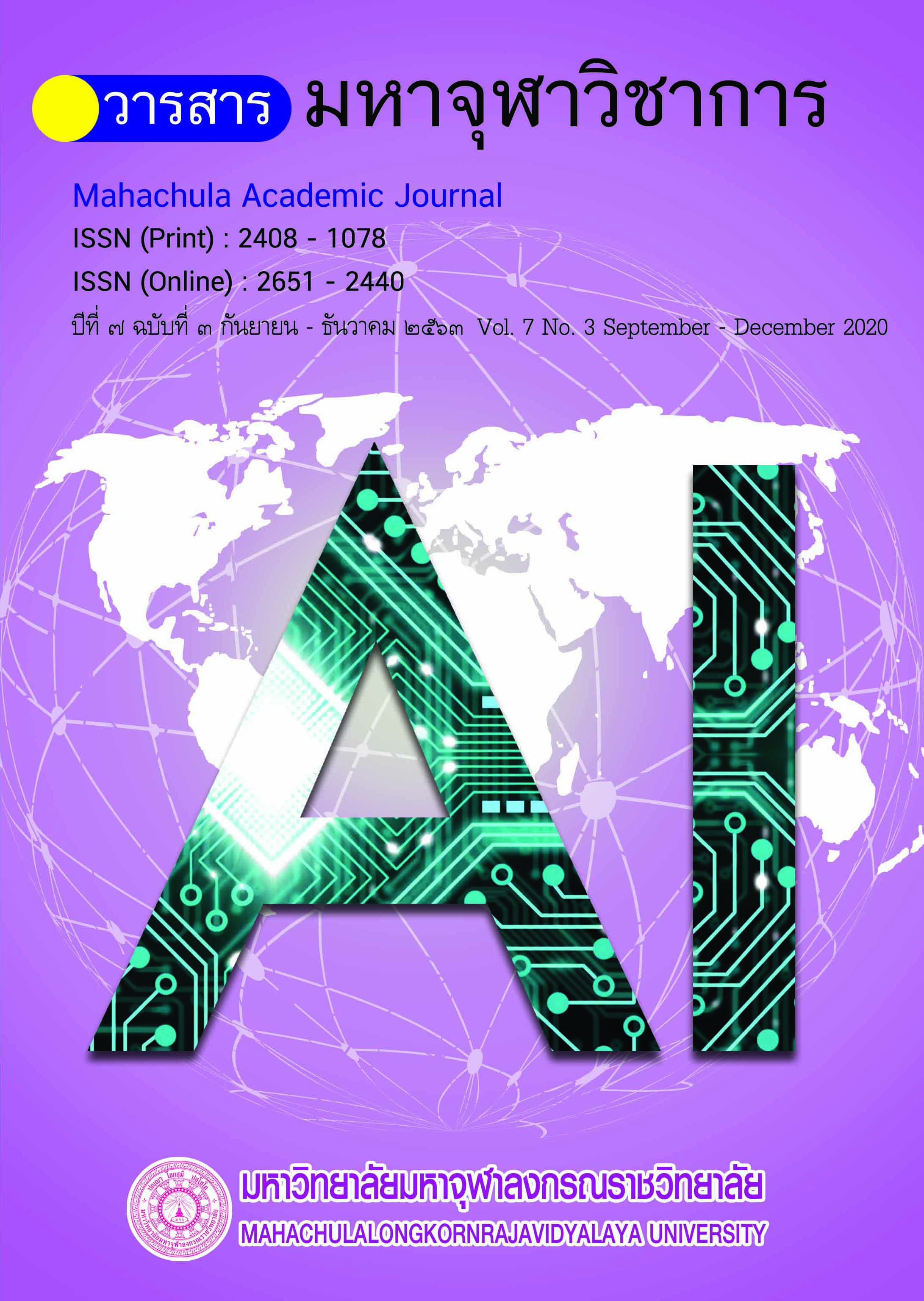A Model of waste of Management for Schools under the Office of Basic Education Commission
Main Article Content
Abstract
This research is aimed at: 1) To analyze the Waste of Management for Schools under the Office of Basic Education Commission, 2) To create the Waste of Management for Schools under the Office of Basic Education Commission, and 3) To evaluate a model ofWaste of Management for Schools under the Office of Basic Education Commission. The method of the study was divided into 3 steps. Step 1 was to analyze the factors of the Waste of Management for Schools under the Office of Basic Education Commission by using related documents, an interview16 experts, and questionnaire results from 496 participants. Step 2 To creating the Waste of Management for Schools under the Office of Basic Education Commission by holding a connoisseurshipof 11 experts. Step 3 Toevaluate a model of Waste Management for Schools underthe Office of Basic Education Commission by collecting the data from 10revealed that there were 8components, namely: 1. Administrator’s leadership 2. Learning organization 3. Organization 4. System of management5. Learning practice 6 Cooperation of network 7. Strategic plan of development and 8. Quality of action plan. A model of waste Management for Schools under the Office of Basic Education Commission comprised 3 parts part 1: introduction.Part 2 contents, consisting of components model and administration process. Part 3: conditions forsuccess. Evaluation of the developed model of waste of Management for Schools under the Office of Basic Education Commissionfound that the aspects of 1) Correctness, 2) suitability, 3) feasibility and 4) utility were the high level.
Article Details
References
กรมส่งเสริมคุณภาพสิ่งแวดล้อม. การอนุรักษ์สิ่งแวดล้อม. พิมพ์ครั้งที่ ๖. กรุงเทพมหานคร: ดอกเบี้ย, ๒๕๔๕.
กรมส่งเสริมคุณภาพสิ่งแวดล้อม. โรงเรียนปลอดขยะ. พิมพ์ครั้งที ๔. กรุงเทพมหานคร: ดอกเบี้ย, ๒๕๖๐.
กรมส่งเสริมคุณภาพสิ่งแวดล้อม. เอกสารการจัดกิจกรรมเนื่องในวันสิ่งแวดล้อมโลก พ.ศ. ๒๕๖๑. กรุงเทพมหานคร: กระทรวงทรัพยากรธรรมชาติและสิ่งแวดล้อม, ๒๕๖๑.
กรมส่งเสริมคุณภาพสิ่งแวดล้อม. สรุปผลการดำเนินงานโรงเรียนปลอดขยะ พ.ศ. ๒๕๖๐. กรุงเทพมหานคร: กระทรวงทรัพยากรธรรมชาติและสิ่งแวดล้อม, ๒๕๖๐.
จรัสศรี สิงห์สถิต. “ความคิดเห็นของนักเรียนเกี่ยวกับมลพิษทางสายตาที่เกิดจากการทิ้งขยะในโรงเรียนกรณีศึกษา : โรงเรียนบ้านกุดธาตุ จังหวัดขอนแก่น”. วิทยานิพนธ์ศึกษาศาสตรมหาบัณฑิต.บัณฑิตวิทยาลัย : มหาวิทยาลัยขอนแก่น, ๒๕๔๙.
ดวงใจ ปินตามูล. “การจัดการขยะมูลฝอยแบบมีส่วนร่วมของประชาชนในองค์การบริหารส่วนตำบลบ้านโสก อำเภอหล่มสัก จังหวัดเพชรบูรณ์”. ราชภัฏเพชรบูรณ์สาร. เพชรบูรณ์ ปีที่ ๑๕ ฉบับที่ ๒ (๒๕๕๖): ๕๖-๗๐.
ทัศนาพร ผาณิบุศย์. “การประเมินผลหลักสูตรประชากรศึกษา (คท ๕๕๒) ระดับประกาศนียบัตรวิชาชีพประเภทวิชาคหกรรม พุทธศักราช ๒๕๒๕”. วิทยานิพนธ์ศิลปศาสตรมหาบัณฑิต. บัณฑิตวิทยาลัย: มหาวิทยาลัยมหิดล, ๒๕๕๑.
นโยบายและยุทธศาสตร์การวิจัยของชาติ ฉบับที่ ๘ (พ.ศ. ๒๕๕๕-๒๕๕๙). สำนักงานคณะกรรมการวิจัยแห่งชาติ. กรุงเทพมหานคร: โรงพิมพ์ชุมนุมสหกรณ์การเกษตรแห่งประเทศไทย จำกัด, ม.ป.ป.
บุญรักษ์ ยอดเพชร. ประชุมเชิงปฏิบัติการเพื่อถอดบทเรียนการส่งเสริมการมีส่วนร่วมของชุมชนในการคัดแยกขยะต้นทาง. ประจำปีงบประมาณ พ.ศ. ๒๕๖๐ ณ โรงแรมวานา เวลเนส รีสอร์ท อำเภอเมืองหนองคาย จังหวัดหนองคาย, ๒๕๖๐.
ปนัดดา รุจะศิริ. การรับรู้ และพฤติกรรมเกี่ยวกับการจัดการขยะของนักศึกษาวิทยาลัยพยาบาลบรมราชชนนี พะเยา. กองบรรณาธิการวารสารการพยาบาล การสาธารณสุข และการศึกษา. วิทยาลัยพยาบาลบรมราชชนนี จังหวัดพะเยา. พะเยา: วิทยาลัยพยาบาลบรมราชชนนี, ๒๕๕๔.
ปรเมษฐ์ โมลี. การวิเคราะห์รูปแบบความสัมพันธ์โครงสร้างเชิงสาเหตุของปัจจัยที่ส่งผลต่อภาวะผู้นำของผู้บริหารโรงเรียนที่ประสบความสำเร็จ. กรุงเทพมหานคร: มหาวิทยาลัยจุฬาลงกรณ์,๒๕๕๓.
พริมาดา ฉลองชัยสิทธิ์. “พฤติกรรมและความรู้ความเข้าใจของประชาชนในการจัดการขยะกรณีศึกษา คอนโดมิเนียมเขตห้วยขวาง”. วิทยานิพนธ์รัฐศาสตรมหาบัณฑิต การบริหารจัดการสาธารณะ.บัณฑิตวิทยาลัย: มหาวิทยาลัยธรรมศาสตร์, ๒๕๕๘.
เรขา ศรีวิชัย, “รูปแบบการบริหารงานสถานศึกษาเอกชนระดับปฐมวัยจัดที่มีประสิทธิภาพในจังหวัดนนทบุรี”, วิทยานิพนธ์ปรัชญาดุษฎีบัณฑิต การบริหารการศึกษา. บัณฑิตวิทยาลัย: มหาวิทยาลัยศรีปทุม, ๒๕๕๔.
สุนีย์ มัลลิกะมาลย์. การจัดการขยะชุมชนอย่างมีประสิทธิภาพ: รูปแบบและมาตรการทางสังคม เศรษฐศาสตร์และกฎหมายเพื่อการแก้ไขปัญหาขยะชุมชน คณะนิติศาสตร์ จุฬาลงกรณ์มหาวิทยาลัย. กรุงเทพมหานคร: จุฬาลงกรณ์มหาวิทยาลัย, ๒๕๕๓.
Dettmann, P. E.. Administrators, Faculty and Staff/Support Perception of MBNQA Educational Criteria for Implementation at the University of Wisconsin Stout. New York: University of Wisconsin.
Herman Huisman. “Innovative techniques in the use and treatment of solid waste”. Retrieved from: http://embajadamundialdeactivistasporlapaz.com/en/press/ sr-herman-huisman-innovative-techniques-use-and-treatment-solid-waste [10 October 2017].
National Environmental Agency. “Waste Statistics and Overall Recycling”. Retrieved from: https://www.nea.gov.sg/our-services/waste-management/waste-statistics-and-overall-recycling [13 September 2018].


